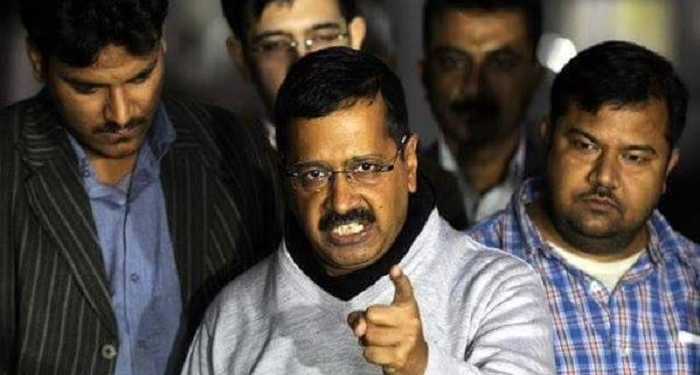The findings of the Pew Survey Reports weren’t surprising at all. Prime Minister Narendra Modi remained “by far” the most popular figure in Indian politics. Rahul Gandhi remained a very distant second closely followed by his mother Sonia Gandhi. At number 4, was Delhi’s Mercurial CM Arvind Kejriwal, who, not very long back was the darling of Indian masses. Pew survey suggested that Delhi Chief Minister Arvind Kejriwal has taken the greatest hit in public approval in the last 12 Months. Arvind Kejriwal polled at 39 per cent. Prime Minister Narendra Modi was soaring at 88 per cent in Pew Survey list. Congress leader Rahul Gandhi scored 58 per cent.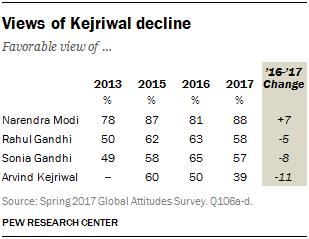
What went wrong with Arvind Kejriwal? Why his support base has been decreasing with every passing year.
It may be analyzed on various parameters chief among them would be AAP’s manifesto vs promises fulfilled, political ideology and allies, inner party democracy, statements and controversies, populist measures and governance, commitments and apathy, Theatrics and blame game, mudslinging and crying hoax, my way or the highway attitude etc.
These are nothing new in politics but the shocking part is expectations versus reality – what Kejriwal was expected to be and what he has made of himself. This seems to be quite a shocker for the people. They invested every bit of their confidence in him, gave him overwhelming support over the years so that he would change the political discourse and provide alternative politics for this country.
All the information is in public domain and one may argue for or against it. So, instead of saying what has been repeated ad nauseam and seeking reasons that have already been sought in the light of the events turned up and his many a flip flop stands that he took over the years, let us discuss the fundamentals that powered Kejriwal’s rise to power and eventually his fall from grace.
- Since the very beginning, Aam Aadmi Party was much more than a political outfit. It promised a new dawn in our democracy, a bend in the potholed road of our dysfunctional democracy. after winning 67 out of 70 seats in Delhi Elections, Arvind Kejriwal was perceived to be a charismatic leader who would rise and remain victorious elections after elections. But, after a series of debacles in the Punjab and Goa assembly polls and drubbing in the Delhi municipal corporation elections, it seems there was never a bend in the road, nor a new dawn. Every loss was a product of his own confrontational and indecisive politics.
It also seems to be a mistake to assume that Arvind Kejriwal won 54% votes in Delhi. No, the people of the city-state were lavishing those votes on themselves, on a dream of change. Each vote was a ticket to watch the movie trailer of change—produced, directed and starred by Kejriwal. Fake degrees, sleaze videos, rampant corruption and extortion calls of ministers and minions proved that AAP failed to emerge as a party with difference. He became one of them.
- Further, he blamed the Punjab defeat on Electronic Voting Machines. His theatrics on the floor of Delhi assembly to showcase his party’s hacking talent on a dummy EVM did not go down too well with people. It simply reflected that his leader was not ready to accept defeat and was blaming everything and everyone except himself. People do not like whining and nagging leaders. Poor and middle-class voters have a lot to gripe about. Yet, they carry on with their miserable lives. Then, the messiah who they thought would address all their miseries turns out to be a crybaby, whining all the time about the L-G, about the Centre, about the Prime Minister, and at times issues threats menacingly.
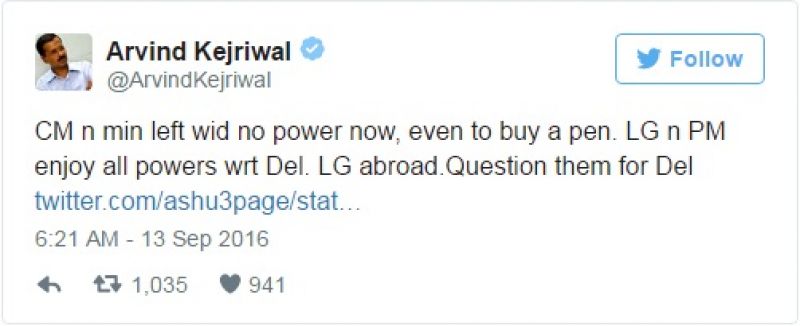
3. It is quite apparent that CM Arvind Kejriwal has not yet come out from his activist avatar. Picking one issue every day, blaming centre and L-G for not letting them work, nagging on social media platforms and shrugging off responsibility, that’s the end of the story. In 2011-12, when Arvind Kejriwal was anti-corruption crusader, very few people knew him but later Jan Lokpal movement made him a household name. He had no responsibility back then, and whatever little responsibility he had was self imposed and nobody could complaint about them. It was completely his discretion to pick up any issue, select any controversy and sit on protests and dharnas. Since, he was not in administration, it was very convenient for him to put government into dock, raise questions and put pressure on administration to fulfill demands.
In a protest, if an activist can draw attention and pull crowd, it is always a win-win situation. If administration succumbs to the pressure and accepts demands, it becomes the activist’s victory, if not then it becomes an authoritarian government which should face the wrath of people thereby making you an even bigger leader.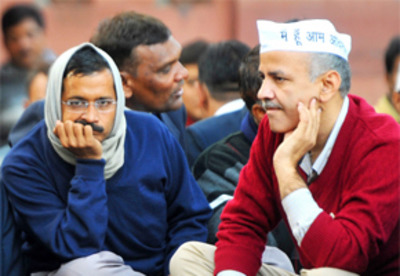 4. Kejriwal’s love for dharna and protest did not seem to end even after he became CM. In January, 2014, people of Delhi witnessed an unprecedented sight of their chief minister Arvind Kejriwal sitting on a dharna outside North Block with his ministers to demand the suspension of four police officers, who allegedly did not perform their duties.
4. Kejriwal’s love for dharna and protest did not seem to end even after he became CM. In January, 2014, people of Delhi witnessed an unprecedented sight of their chief minister Arvind Kejriwal sitting on a dharna outside North Block with his ministers to demand the suspension of four police officers, who allegedly did not perform their duties.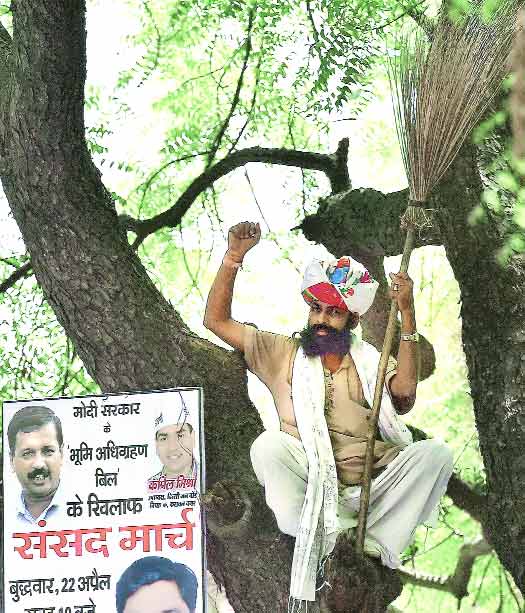
People eventually got bored of his theatrics and continuous drama and expected him to address rather serious issues of public importance. In April, 2015 a bizarre and sad incident happened when a 41-year-old farmer from Dausa in Rajasthan named Gajendra Singh hanged himself before more than a thousand people at a Farmer’s Rally called by the Aam Aadmi Party to protest against the land acquisition Bill in Jantar Mantar.
5. Arvind Kejriwal’s one-time mentor and social crusader Anna Hazare in May 2017 said that he was “deeply disappointed” by the allegations of corruption against the AAP chief, who was in hot water after a minister claimed to have seen him receiving Rs 2 crore in cash.
6. Essel Group Chairman and Rajya Sabha MP Dr Subhash Chandra went to the extent f saying that Arvind and his aides cannot be trusted. Period. Not in the case of women, not in the case of poor people, no nothing.” He also said Kejriwal and Sisodia were the biggest liars he had come across in 66 years of his life.
Reacting to Pew Survey, AAP rubbished the report in its entirety. “This looks some sham survey. Any survey which is eight months old how – can it reflect the reality of today? Survey to be credible should be immediate, and not old,” party leader Ashutosh said.
But a party that has perennially been in denial mode this comment hardly surprised anyone. Also, there is no visible sign that Party would introspect and learn from their mistakes.





















